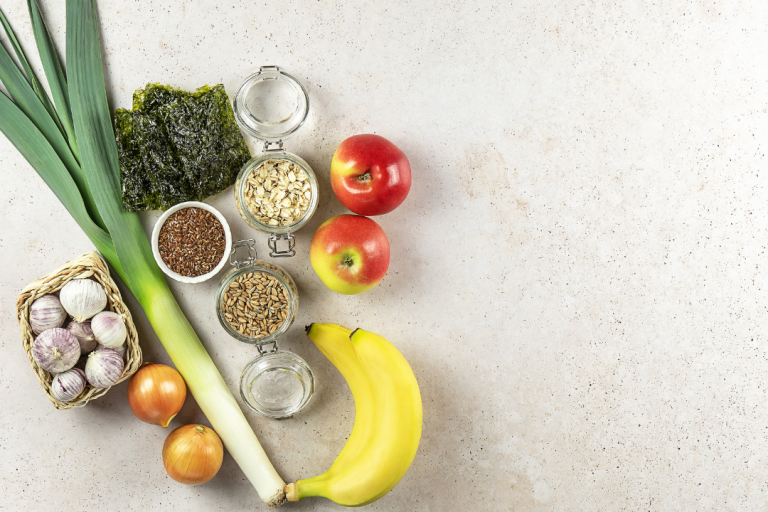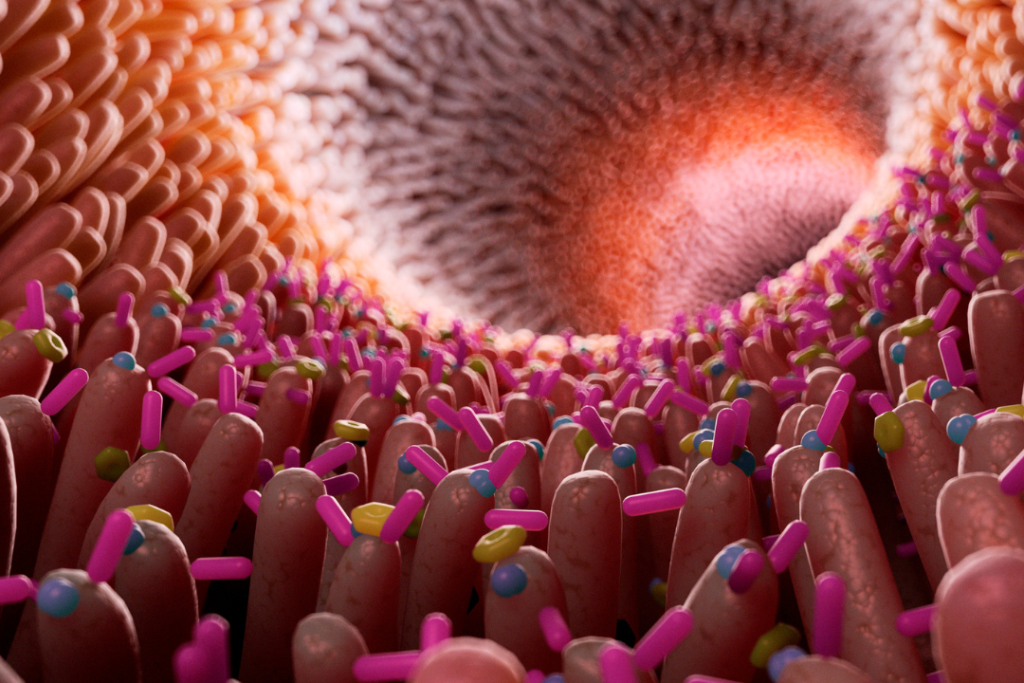Menu
The latest health tips, recipes and wellbeing inspiration from our team at The Remedy Room

In recent years, there has been a growing appreciation for the intricate relationship between the human gut microbiome and overall health. A key player in maintaining a healthy gut is the incorporation of prebiotics into the diet. Prebiotics are non-digestible fibers that serve as fuel for beneficial bacteria in the gut, promoting a balanced and thriving microbiome. This article explores the best ways to incorporate prebiotics into the diet using food as medicine, specific supplementation, and delves into the profound impact this has on our gut microbiome.
The Role of Prebiotics in Gut Health
Prebiotics act as a nutritional powerhouse for the trillions of microorganisms residing in the gastrointestinal tract. By providing these microorganisms with the necessary nutrients, prebiotics stimulate the growth and activity of beneficial bacteria, such as Bifidobacteria and Lactobacilli. It also promotes the production of short-chain fatty acids, which has a soothing and anti-inflammatory effect on the gut lining. Prebiotic intake not only enhances the microbial diversity in the gut but also contributes to improved digestion, nutrient absorption and a robust immune system.
Incorporating Prebiotics through Food as Medicine
Artichokes
Artichokes are not only a delectable addition to meals but also an excellent source of inulin, a type of prebiotic fiber. Inulin serves as a nourishing substrate for beneficial bacteria, supporting their proliferation in the gut. Including artichokes in salads, stews, or simply grilled as a side dish can effortlessly elevate your prebiotic intake.
Garlic
Garlic, known for its aromatic properties, contains fructans – another class of prebiotic fibers. These compounds foster the growth of beneficial bacteria while simultaneously acting as a flavor enhancer in various culinary dishes. Incorporate garlic into your cooking to impart both taste and gut health benefits.
Bananas
Bananas are not only a convenient snack but also a readily available source of prebiotics. Rich in resistant starch, bananas serve as a food source for beneficial bacteria, aiding in the maintenance of a healthy gut microbiome. Including bananas in smoothies, oatmeal, or enjoying them as a quick on-the-go snack can effortlessly boost your prebiotic intake.

Onions
Onions, a staple in many cuisines, contain fructans that serve as prebiotic fibers. These compounds contribute to the growth of beneficial gut bacteria, promoting a healthy and diverse microbiome. Incorporate onions into salads, soups, or sautés to enjoy their prebiotic benefits.
Asparagus
Asparagus is not only a nutrient-dense vegetable but also a source of inulin, a prebiotic fiber. Including asparagus in your meals provides a tasty way to support the growth of beneficial bacteria in the gut. Grill, roast, or steam asparagus for a delicious and prebiotic-rich side dish.
Leeks
Leeks, part of the onion family, contain inulin and other prebiotic fibers that contribute to gut health. With a milder flavour than onions, leeks can be added to soups, stews, or used as a flavourful topping for various dishes.
Dandelion Greens
Dandelion greens may be an unexpected addition, but they are a rich source of prebiotic fibers, including inulin. Add dandelion greens to salads or sauté them with other vegetables for a unique and nutritious prebiotic boost.
Chicory Root
Chicory root, often used as a coffee substitute, is also a valuable source of prebiotic fibers. Consider incorporating chicory root into your diet as a natural sweetener or in baked goods for both flavor and prebiotic benefits.

The Impact of a Flourishing Gut Microbiome Health
A healthy gut microbiome contributes to overall well-being by influencing various physiological processes. The symbiotic relationship between the host and gut bacteria plays a pivotal role in immune function, metabolism, skin health, and even mental health. For example, a thriving gut microbiome can enhance the production of neurotransmitters, encouraging a healthy mood and stress response.
Prebiotic-rich foods help maintain a balanced microbial ecosystem, preventing the overgrowth of harmful bacteria and promoting the resilience of the gut. A diverse and thriving gut microbiome has been linked to reduced inflammation, improved nutrient absorption, and a lowered risk of chronic diseases such as obesity and metabolic disorders. As we continue to uncover the intricate connections between the gut and overall health, integrating prebiotics through a food-as-medicine approach emerges as a simple yet powerful strategy for promoting a resilient and vibrant gut microbiome and reap the many health benefits associated with a balanced microbial community.

Prebiotic Supplementation
Prebiotic supplementation may be considered for individuals facing challenges in obtaining sufficient prebiotics through their regular diet. Factors such as dietary restrictions, limited access to diverse and prebiotic-rich foods, or specific health conditions affecting the gut microbiome could prompt the need for supplementation. Additionally, those aiming to proactively support gut health, especially when facing digestive issues or antibiotic treatments that may disrupt the microbiota, may find prebiotic supplements beneficial in promoting a balanced and resilient gut microbiome. However, it is crucial for individuals to consult with healthcare professionals before starting any supplementation to ensure it aligns with their specific health needs and conditions.
Prebiotic Supplements:
Partially Hydrolyzed Guar Gum (PHGG)
Supplementing with PHGG has been shown to have prebiotic effects and promote the growth of beneficial bacteria in the gut. This soluble fiber is derived from guar gum and serves as an easy and effective way to boost prebiotic intake.
Acacia Fiber
Acacia fiber is derived from the gum of the Acacia tree and is known for its prebiotic properties. It is often available in supplement form, providing a convenient way to support gut health.
Chicory Root Inulin
Chicory root inulin is a popular prebiotic supplement that can be easily incorporated into daily routines. It is available in powder or capsule form, offering a versatile option for individuals looking to enhance their prebiotic intake.
If you would like access to practitioner-only supplements, please visit our online store where our dispensary staff can prescribe a prebiotic supplement to support your gut health. If you have any questions, you can call to speak to one of our staff about the most suitable supplement for you on 02 6685 6445.
References:

Jessie Johns is a Clinical Nutritionist that has a deep understanding of how the food we eat impacts our health and wellbeing. She believes that consistently meeting the body’s nutritional requirements with adequate wholefoods is fundamental in not only restoring good health, but to truly heal the body and thrive.
To learn more about Jessie and her offerings, click here
The Remedy Room recognises the Bundjalung of Byron Bay Arakwal people, the Minjungbal people and the Widjabul people as Traditional Owners and custodians for parts of the Byron Shire